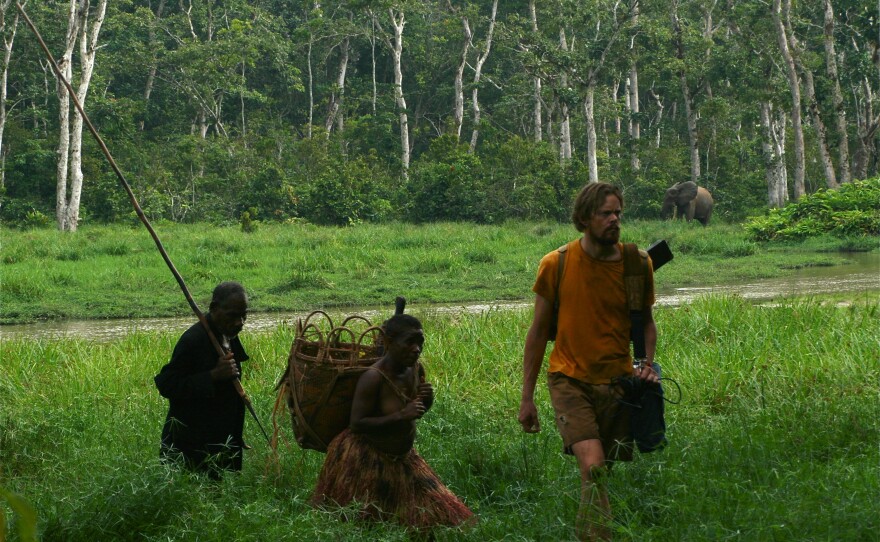"Oka!" (opening November 18 at Reading Gaslamp Theaters) is loosely based on ethnomusicologist Louis Sarno who left his New Jersey home to record the music of the Bayaka Pygmies in Central Africa.
Sarno first went to Africa to live with the Bayaka and record the sounds of the rainforest. He documented his first trip in a memoir called "Song of the Forest" (1993), and in the CD-book "Bayaka: The Extraordinary Music of the Babenzl Pygmies" (1996). While working on a second memoir, first met filmmaker Lavinia Currier, and served as her translator for a documentary she was doing about a pygmy who had been brought to the United States for the 1905 World’s Fair. Currier wanted to explore the western tradition of exploiting African natives but Sarno informed her "that in Pygmy culture, they like to forget sad things and remember happy things, so I [Currier] started to rethink that story from another perspective.” That perspective would turn out to be Sarno's.
Sarno (played by Kris Marshall) was not simply a white man who came to this African culture to document it and leave. He came to the Bayaka Pygmies to live with them, stay with them for decades, and ultimately marry into their community. Along the way he also strove to document their way of life and their music.

"Oka!" is best at chronicling Sarno's experiences within the pygmy village. When the film tries to make broader statements about the corrupt local government (represented by the local Bantu mayor played by Isaach De Bankolé) and about the destruction of the rainforest that has sustained the pygmies in the past. As Currier tries to deliver a more overt message, the film falters. Ironically, it is the professional actors, Marshall and De Bankolé, that come across as very actorly and over the top as if they are very conscious of trying to make a politically correct statement to offset some of the political wrongs committed against African natives in the past. On the flip side, all the non-professional pygmies come across as quite natural and subtle, and fully at ease in front of the camera. But whether subtly or not, Currier does open our eyes to how modern encroachment on the rain forests in placing the pygmies in jeopardy.
Despite some missteps and awkwardness, "Oka!" proves compelling and engaging. Currier captures the beauty of the African landscape, and she takes the time to document the Bayaka culture with care and compassion.
“OKA!” (in Sango, Akka, and French with English subtitles) is a richly rewarding cross cultural exchange.
Companion viewing: "Songcather," "The Valley Obscured by Clouds," "Ten Canoes"






